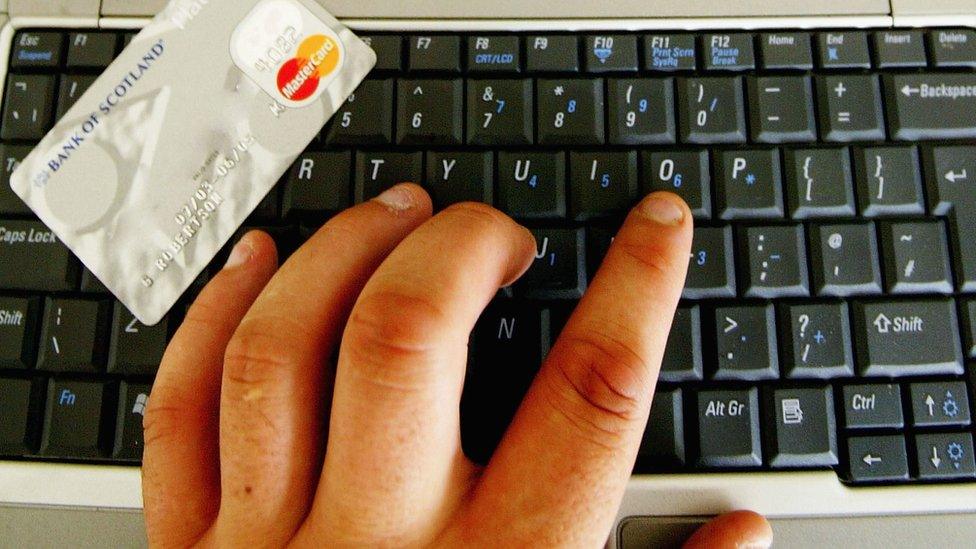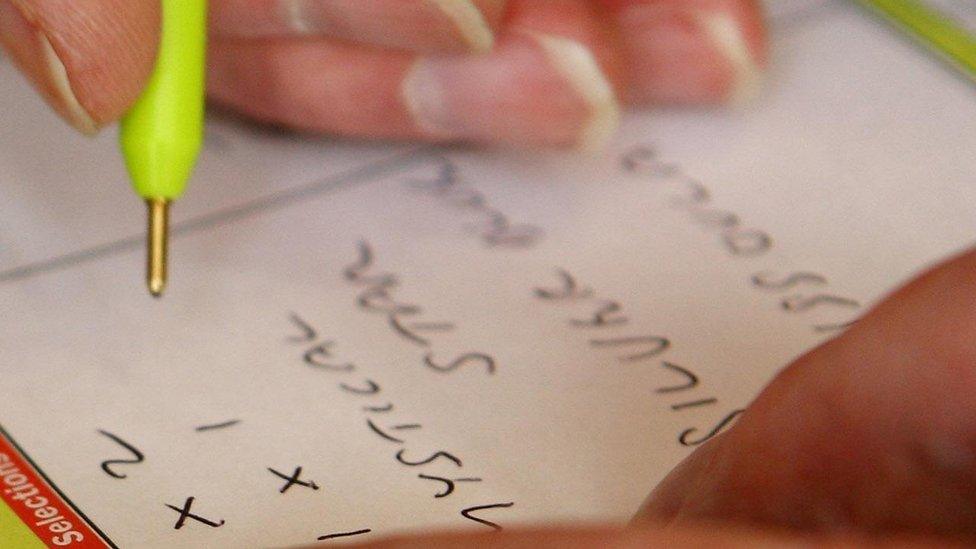Bookmakers' software under scrutiny
- Published

The Information Commissioner's Office is investigating whether online bookies are breaking the law.
It has found in favour of two punters who complained about software being downloaded on to their computers without their permission.
The gamblers believe the software could be used to track their betting history and close their accounts if they win.
The gambling companies say they are not breaching data laws and they use the software to protect against fraud.
The software at the centre of the complaints is called iesnare or iovation and downloads automatically when you log in to some online gambling websites. In some cases, it's downloaded when you visit the homepage.
Brian Chappell, who runs the campaign website Justice for Punters, has had his accounts closed with online bookmakers after placing winning bets.
He found the software on his computer after visiting the Skybet website, he told BBC Radio 4's You and Yours.
"I actually cleaned my hard drive on my laptop and I intentionally went on the Skybet website before I went on any other internet site and within two seconds, iesnare - now called iovation, they keep changing the name - and there it was."
Accounts closed
Skybet said: "Like many other operators, we use iesnare to tackle fraudulent activity. We notify customers we use iesnare in a banner at the top of our website and in our privacy policy."
The horseracing industry is worried about punters not being able to place their bets.
In April 2016 the Horseracing Bettors Forum, which was set up with the assistance of the British Horseracing Authority to represent punters, surveyed its members.
In all, 878 respondents reported more than 1,000 closed accounts and some 4,000 restricted accounts in the previous six months. Of those surveyed, 59% said their interest in the sport had fallen as a result.

The gambling companies deny they use iesnare to ban successful bettors. They say they only collect basic information, such as IP addresses, which identify the devices being used.
Mr Chappell believes an IP address can identify you: "If you open an account with a company and they restrict your account, another thing you might like to try is that you open another account with them using another name.
"Because it's the same IP address you're using, it will identify you as a person who's had an account closed down."
Breaching data rules
Peter Phillipson, who writes a horseracing blog, found the iesnare software running in the background of his computer. When he disabled it, Totesport wouldn't let him log in to his account.
He complained to the Information Commissioner's Office: "They told me they don't believe that the argument that Totesport use, that it's identifying a computer only and nothing personal, is valid.
"They say the IP data being processed here constitutes personal data under the Data Protection Act. So they found in my favour."
A spokesperson for Totesport said: "Totesport uses this product for fraud prevention, authentication and customer protection purposes by checking whether devices have been identified with fraudulent transactions in the past, such as reported instances of identity theft, account takeovers, or malware attacks.
"It does not collect any client information. However, we are constantly reviewing our procedures and working with the ICO."
The manufacturers of iesnare, a company called iovation, said it had "no access to information, such as the winning and losing history of players, nor do we have access to specific betting details".
The company also said it was a third party that supplied the software and it was up to gambling companies to comply with data laws: "Every service contract signed by an iovation customer requires that the customer comply with respective data privacy laws, which includes the appropriate consent and notice provisions."
Garreth Cameron, from the Information Commissioner's Office, said the investigation was continuing: "Our enquiries will focus on looking at whether the companies in question have been very clear, very transparent about their use of these technologies."
- Published21 October 2016

- Published18 October 2015

- Published7 February 2017
